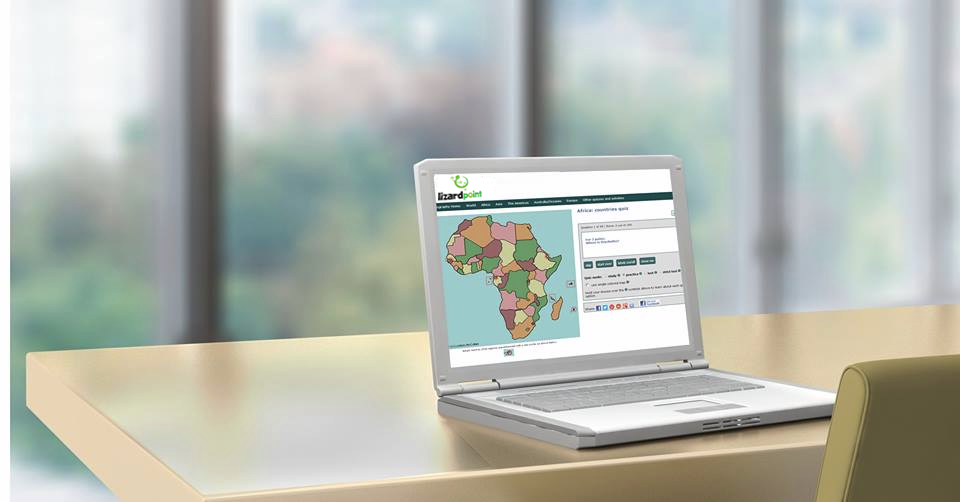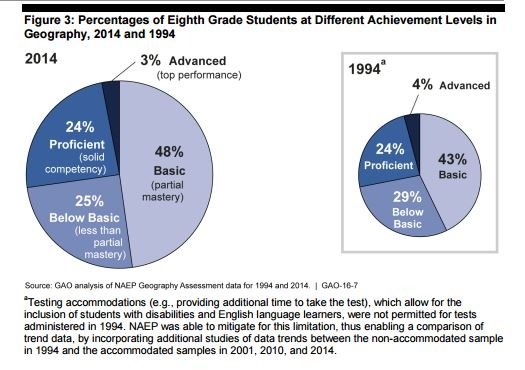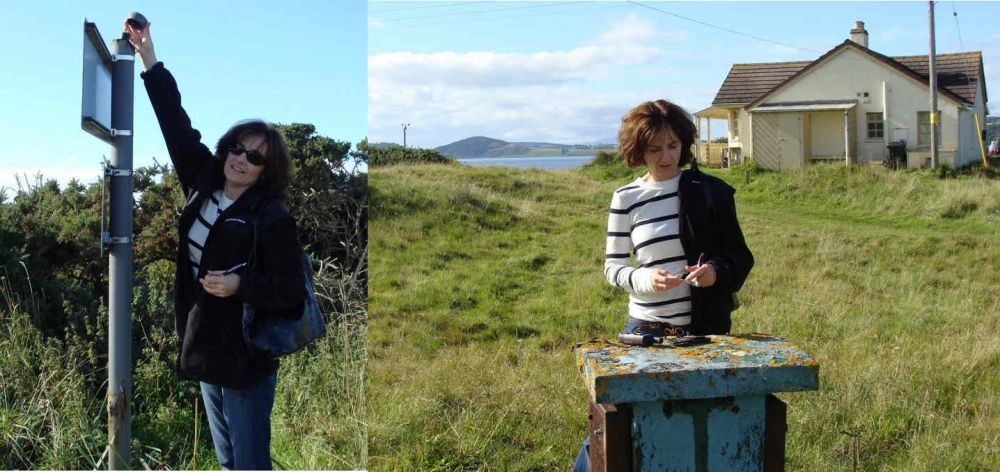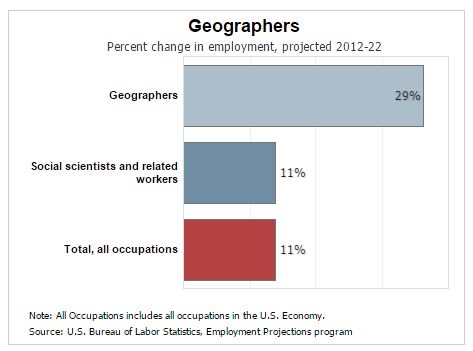Oct 212015The use of technology by teachers is an subject of great interest to the Lizard Point team. Obviously, we would like to make Lizard Point Quizzes even better; easier to use for teachers and students, more engaging and able to impart real learning about our world. But beyond that, we strongly believe that our kids are going to be increasingly living in a 'digital world', and their experience in the classroom should reflect and prepare them for that reality.

In researching this post, we came across several articles about the use of technology in the classroom that were rather disappointing. Several of them were summarized in Why Ed Tech Is Not Transforming How Teachers Teach by Benjamin Herold in Education Week in June, 2015. We took away a couple of key points from this article:
- By and large, we have gotten past 'first order' challenges with adaption of educational technology such as lack of internet connectivity and access to technology. As evidence, the report mentions 75% of high school students reporting regular use of smartphones or tablets in the classroom.
- However, 'second order' challenges are significantly hindering progress. These are reportedly mostly concerned with teacher attitudes, training, administrative support and knowledge.
"The introduction of computers into schools was supposed to improve academic achievement and alter how teachers taught..", according to Stanford University education professor Larry Cuban, ".. neither has occurred". The article goes on to describe technology adaption in the classroom as incremental and more likely to be related to helping teachers teach (ie. powerpoint vs. overheads) than in how students learn. Some good counter-examples are also cited, involving early adapters that have managed to create student-driven, collaborative learning opportunities. But these are definitely presented as the exceptions.
Based on the feedback we receive at Lizard Point, we are convinced that many, many teachers have found ways to use educational software to help students learn (and hopefully not create more work for themselves). We would love to hear from any teachers about their approaches to technology and how they have overcome challenges. Please send us a note or leave a comment. Perhaps we'll find some approaches that we can feature in a later post.
Also, if you have thoughts on ways that software could improve - we'd love to hear that as well. What if we had educational software that engaged kids the way that their video games do? What if they could collaborate and compete with their classmates in a visually stimulating way? What would that look like, feel like?
Oct 182015We try to pay a lot of attention to news about geography education. And on some days, it can be downright depressing. USNews just released an item entitled, U.S. Students Are Really Bad at Geography. The article discusses a new report from the Government Accountability Office with findings that likely explain persistent poor showings on the NAEP Geography Assessment results.

The results reported are dismal. Almost 3 in 4 eighth grade children tested as below proficient in geography - a result that shows no improvement in 10 years. And the most recent results for 4th and 12th grade students are even worse. Sigh.
The explanation that came out of the Accountability Office is simple - geography is being squeezed out of the curriculum. The report finds that more than half of social studies teachers spend 10 percent or less of their time on geography. In fact, a majority of states do not even require a geography course in middle school and even less require a geography course to graduate high school. This is partly due to heavy emphasis placed at both the national and state levels on other subjects such as reading, math and science.
The other factor mentioned is a lack of support at the classroom level for teachers. This includes preparation time, professional development and a lack of geographic technology in the classroom.
Over the last few years, we've communicated with hundreds of teachers in the US that are using Lizard Point to help make geography accessible and relevant and engaging to their kids. These teachers understand the importance of geography as critical context to a child's development. And the best ones manage to integrate geography as an aspect of a world view into all of the social studies they teach. This integration of geography into overall learning is a theme that interests us greatly as we plan new features in our site. We believe this is important. The world we share is shrinking and a global understanding is critical for tomorrow's citizens.
Oct 112015We discovered geocaching quite few years ago. For us at Lizard Point, it was the perfect combination of geography, nature, technology and general geekiness. It also gave us a fun, cheap, and easy way to engage our kids when they were young. In looking for an item of interest to geography teachers, I went searching for examples of integrating it into lesson plans. Reading the piece, A geocaching treasure hunt helped my students learn about the landscape in the Guardian, by teacher Stephen Lockyer, made me think that this idea has occurred to a few of you.

In case you haven't geocached - it's really simple. Go to the official website and get a free account. In five minutes you can bring up a map of your neighbourhood and find pointers to caches that others have hidden away. I bet you'd find 10 within walking distance. You then note the GPS coordinates and you start your hunt. It's even easier if you just download the free app to your smartphone. After some trekking around and (perhaps) peeking at clues - you'll discover the cache. It will always contain a log and often some little trinkets. The idea is to sign the log, exchange some trinkets if you like, and record the find with the app.
Stephen worked geocaching into an outing that he had already planned and was able to integrate map reading into the lesson. His class was so engaged that they began a program to create and hide geocaches in their own neighbourhood after the field trip.
As the photos illustrate, our family always includes some geocaching when we're on holiday. These were taken on a beach in Scotland. And I can almost guarantee that you'll find some sights off the beaten path and well worth the hunt.
Sep 272015We noted two somewhat differing views of Geography in recent education news.
The UK Guardian published an editorial this summer entitled, The Guardian view on geography: it’s the must-have A-level. The editorial notes a recent Royal Geographical Society report that notes, 13% students more took geography at A-level this year than last, up to 37,100 – the biggest jump of any of the major subjects. The editorial goes on to describe geography as a "subject for our times. It is inherently multidisciplinary in a world that increasingly values people who have the skills needed to work across the physical and social sciences".
This perspective of the emerging importance of geography is supported by recent statistics released by the United States Department of Labor, describing job outlooks for geographers over a 10 year period from 2012 - 2022. The report projects an increase of 29% in jobs in this occupation.
However, a recent item from Australia's Tech Times reports that the country's education ministers have endorsed coding to replace geography and history as part of the new digital technologies curriculum, in which students will start learning to code in Year 5 and begin programming by Year 7.
As a digital-oriented group with a passion for geography and education, we at Lizard Point have strong feelings that all these subjects are critical. It is a shame to create a dynamic where one has to be traded off for the other. In fact, we believe educators should be looking for ways to better integrate these subjects. Doing things digitally, we believe, should be a natural reflex for our children - whether it be Maths, History or Geography.





